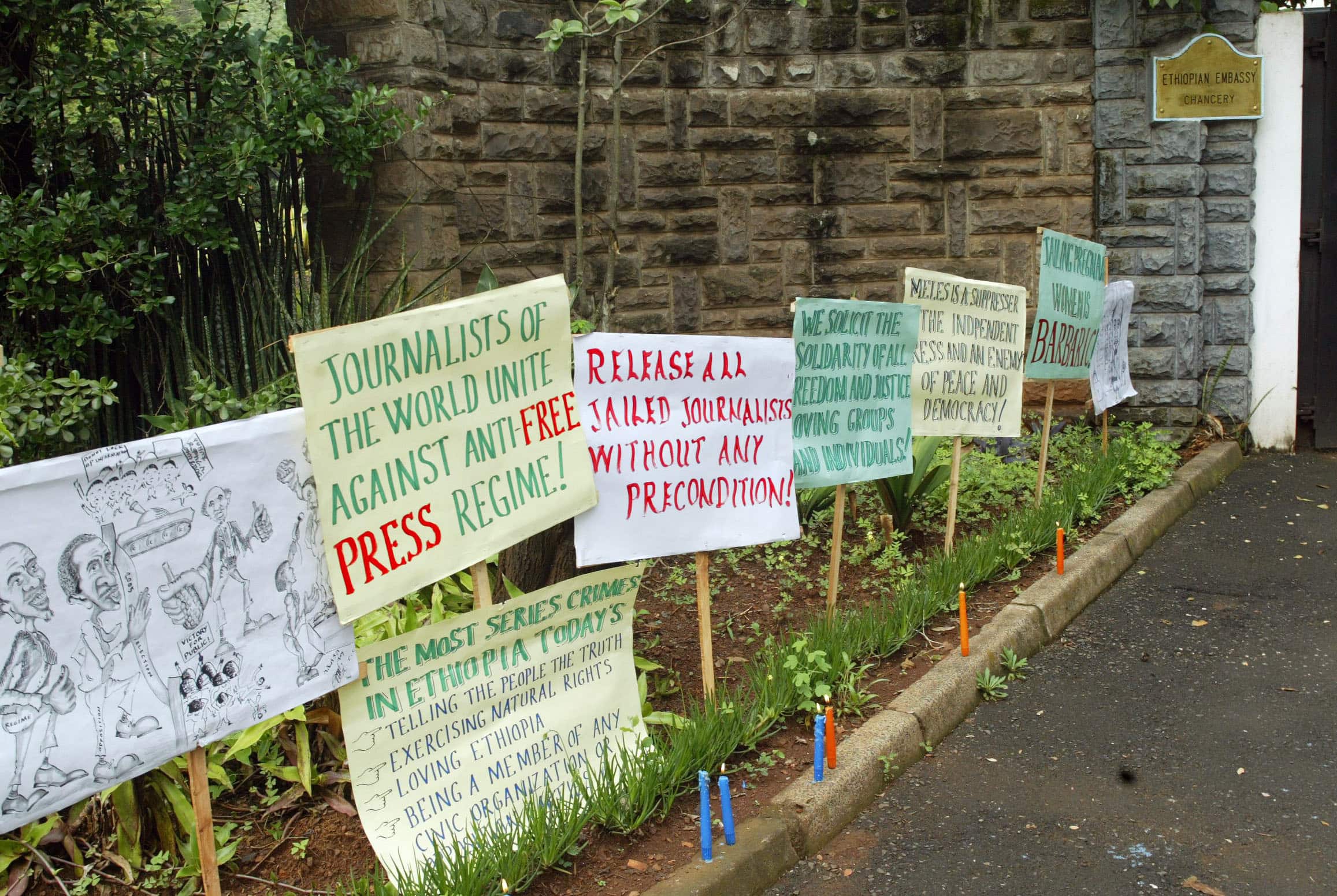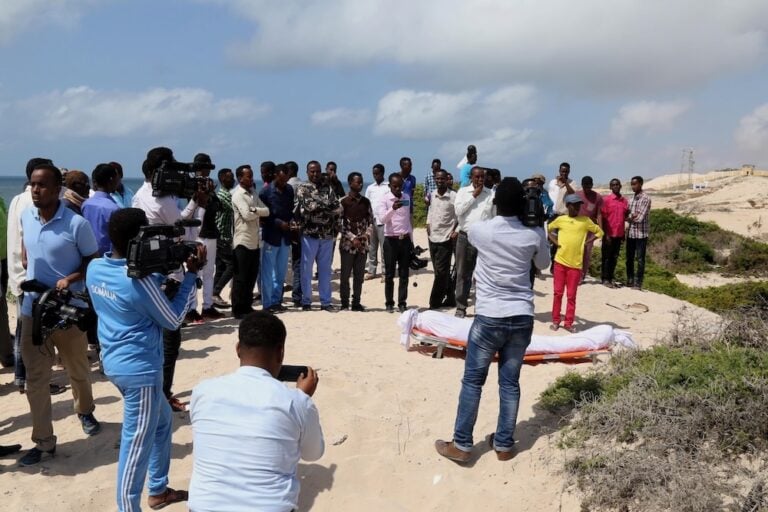The African Freedom of Expression Exchange condemns the 27-year sentence imposed on Mohamed Aweys Mudey and notes that the Ethiopian media environment is characterized by the arrest of journalists.
The African Freedom of Expression Exchange (AFEX), a continental body of African free expression organisations, condemns in the strongest terms the 27-year sentence imposed on veteran Somali journalist, Mohamed Aweys Mudey, aged 48, in Addis Ababa, Ethiopia.
Ethiopian prosecutors accused Mudey of having information about Al-Shabaab operations in Ethiopia and charged him with participating in terror activities. Mudey, who was persecuted under Ethiopia’s anti-terror law, was arrested in Addis Ababa in November 2013. In February this year, when the 4-month period prescribed by anti-terror law to investigate a suspect elapsed, he was found guilty of the charges and given this harsh sentence.
At least three people detained with Mudey at Ethiopia’s Crimes Investigations Sector (CIS) witnessed him being tortured and having difficulty walking. Demands were repeatedly made of him to provide information he does not know. He did not have a lawyer or family member with him during his trial and was later moved to a secret place dedicated for people accused of “terrorism” to serve his jail term.
AFEX calls the harsh sentence against Mohamed Aweys Mudey a travesty of justice, and notes with worry how the Ethiopian media environment has recently been characterized by arrests and prosecution of journalists. Mudey’s conviction is clearly a mockery of justice and an evidence of Ethiopia’s move towards complete disregard for fundamental human rights.
Ethiopia’s anti-terrorism law, under which a number of journalists were prosecuted in recent years, is overly broad and ambiguous; and deprives suspects of the right to be presumed innocent. The law undermines international guarantees of freedom of expression, especially through its broad definition of “terrorism”. In its enforcement of the law, the government of Ethiopia’s actions have fallen far short of international standards and protocols, including the Vienna Declaration on Terrorism, Media and the Law.
AFEX thus appeals for the immediate and unconditional release of Mohamed Aweys Mudey, and calls on for the rescinding of Ethiopia’s anti-terrorism law, which violates African and international laws. Detaining journalists as if they are terrorists is the hallmark of authoritarian regimes and deserves to be condemned by all.
Mindful that Ethiopian journalists are still detained in Ethiopia and were persecuted under the anti-terror law, AFEX reiterates its call for the immediate release of all journalists currently imprisoned in Ethiopia.
Ethiopia currently detains Reyot Alemu of Fitih newspaper; Woubeshet Taye of Awramba Times; Shiferraw Insermu of Ethiopian Television (ETV); Saleh Idris Gama and Tesfalidet Kidane Tesfazghi of Eritrean TV; and Eskinder Nega, a freelance journalist.
Background
Mohamed Aweys Mudey fled to Ethiopia for safety reasons after he was wounded in an Al-Shabaab suicide bombing at Shamo Hotel in Mogadishu on December, 3, 2009. The bombing killed at least 25 people, including three journalists. Mudey was among some 100 Somalis arrested in November 2013 under the suspicion of a terror attack in Addis Ababa.
Mudey had worked with several media organisations, providing news reports on Somalia-related events and issues.
Mudey had also previously worked for numerous media houses in Mogadishu, namely Radio Shabelle, Somaliweyn Radio and Radio Banadir.
ABOUT AFEX
AFEX is a network of African freedom of expression organisations, all members of the International Freedom of Expression Exchange (IFEX), who seek to address freedom of expression challenges in Africa. Such challenges include laws and policies, traditions, customs, absence of capacity arising from ignorance, poverty and lack of access to technology; and security. See: www.africafex.org



